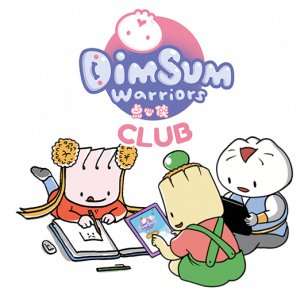Raising Bilingual Children Without Resentment:
8 Questions for 4 Moms
The footage above was edited from the Instagram Live session.
Introduction
We know that being bilingual or multilingual confers great advantages in our globalised economy. Yet, we also know that learning languages effectively can be hard.
Too many of us have undergone years of 2nd language classes only to emerge barely being able to hold a complete conversation in the language, never mind reading a novel or—horrors!—a contract.
We have also encountered people who, because of their bad experiences with 2nd language classes, have formed complexes. We all know people who say, “I’m just bad at languages,” or “I’m a coconut—brown on the outside, but white inside.” Worst of all, some form resentments about the language itself.
And it’s no wonder, when the immediate environment is often heavily tilted in favour of one dominant language.
Raising our children to be bilingual and multilingual therefore becomes an uphill struggle involving hard work, pain, mistakes, but also great joy.
It is so much easier when we have a proverbial village of parents who are on the same journey to share tips and provide guidance and support.
So we created our virtual village! We gathered 4 moms who blog regularly about our children’s language journeys in Singapore, Australia, Canada and Taiwan.
The 4 Moms

Claudia Kimura
https://claude331.wordpress.com/
An international schoolteacher born in Hong Kong, raised in Canada, and now living in Singapore with her family, she holds a Master’s Degree in Teaching English as a Second Language, speaks four languages, and homeschools her 5 boys in English, Cantonese, and Mandarin.

Emma Lee
https://lahlahbanana.com/
Writer of blog Lah Lah Banana, about how her 3 “banana” daughters (yellow on the outside, white on the inside) have gone about learning languages, and falling in love with Chinese in particular.

Maggie Xu
https://pandamama.com.au/
A proud mum to a bilingual 8-year-old little girl, she moved from Sichuan, China to Australia, and teaches her daughter to use the Chinese language just like the native Chinese kids and, most importantly, to be proud of her Chinese heritage!

Woo Yen Yen
MODERATOR | CEO & Co-Creator, Dim Sum Warriors
Yen Yen was a tenured professor of education in New York as well as a visiting scholar in Taiwan’s National Central University. Her areas of expertise are curriculum development and pedagogical methods. Her daughter is now in middle school, loves languages, and has attended 6 different schools with different approaches to language learning.
QUESTION 1:
What role do we, as parents, play in our children’s language journeys?
Key takeaways on parental roles:
- Make sure the interest in the language is there in the long run (not just short-term achievement)
- Provide fun experiences in the language that’s different from what’s in schools
- Model the curiosity and love for language-learning for your kids
MAGGIE: I don’t want my daughter to dislike or hate language. My job is not to put out that spark, it’s to make sure that light is there for the language. Don’t compare your kids’ language ability with the other kids because they all have different backgrounds. Our goal is for her to be able to use the language in the future. Just a key to open up another door. It’s not for exams or for showing off.
CLAUDIA: You can’t force them. it’s the people who are interested in the language who will continue with their learning. If schools are already doing the 听写,maybe your role as a parent would be to add the fun stuff back in. Do what the school is not doing. So if the school is super academic, you can do the fun stuff in the language.
EMMA: You really need to go beyond the classroom. We would walk around and point out signs, we would try and order from a restaurant menu, play music in the background… I was also keen to learn, so I would find out what the words meant. We would learn as a family together. The family has to love the language first.
QUESTION 2:
How have you dealt with resentment about having to learn a second or foreign language?
Key takeaways on dealing with resentment:
- Help the learner find a personal purpose for learning the language
- Make it fun right from the start
- Don’t force, don’t get too stressed about it
- Focus on finding purpose because with a clear purpose, learners will naturally put in the hard work
MAGGIE: I grew up in the countryside in China. I totally hated English. English was really my weakest and I never thought I would pick up English in my early 20s and then used English to change my life.
The reason I picked up English was because I wanted it. I wanted to learn a skill to have a better living and a decent job. For two years, I went to language college and didn’t do anything but study English. I wanted it so badly so I managed to learn English very well for two years. I rented an apartment next to college and studied English day in and day out.
That’s something that I want my daughter to experience. When you want something so badly, you can have it.
CLAUDIA: I had lots of resentment growing up in Canada and my mom made me go to Chinese school once a week and it was 3 hours long and we learned things that I didn’t like, it didn’t connect with any part of my life, and it was just memorizing all these model answers.
So even though I went to Chinese class until Grade 12, my level is still at Grade 6 because beyond that, I wasn’t listening. There was so much resentment that I just decided that I just can’t do that with my kids. I just have to make it fun from the start.
QUESTION 3:
How can I overcome my child’s resistance to learning?
Key takeaways on resistance:
- Always connect learning to the child’s strengths and interests
- Use popular culture!
- Connect to the pop culture that you and the children can share with each other, e.g., watch cartoons or reality shows in Chinese
- Inspire kids through the sharing of books, movies, songs or TV shows so kids can participate in pop cultural conversations
CLAUDIA: My kids like watching Paw Patrol, and actually, they haven’t watched a single episode in English! And now they are into Pokemon, and we only watch Pokemon in Chinese. I’ve never heard them complaining, “Aww, I have to watch this in Chinese” because they like those cartoons. Watching cartoons is a really great way to integrate it into your daily life! The key was that I started early and cartoon time was always in Chinese.
MAGGIE: As they grow, like my daughter, I find it’s harder to tell her what to do, rather I need to work with her strengths, and also her interests.
When they get to high school, there’s all the great songs and drama. I learned a lot of Chinese later, through karaoke!
Find out what the stuff is between you and your kids that you enjoy doing, and then do it together with them. I actually think that gets easier when they get older, because I don’t enjoy watching Pikachu!
When they are older, I would enjoy watching TV dramas with them. You have to find the pop culture that can connect you and your child. That’s really the way to go.
Maybe comics, manga, comics that are translated into Mandarin, Chinese reality shows … I learned so much from those reality shows!
YEN YEN: We’ve had a Chinese tutor for a few years now.
But when I interviewed tutors, the question wasn’t so much: what are you going to teach my child?
The question when I interviewed tutors was, “what books do you read, what movies do you watch, what songs do you listen to?”
I was very curious about the tutor’s pop cultural interests.
There was one tutor who told me that “I have very high standards and I expect the students I teach to have very high standards.” That wasn’t what I was looking for.
And then there was a tutor who talked enthusiastically about the novels and TV shows that she was watching.
So I got her to spend two hours a week to read great stories together with my daughter and talk about interesting TV programs, so that for the rest of the week, my daughter gets curious enough to find out more and associate Chinese with pleasure.
So instead of focusing on the academics, the aim was to really get my daughter into Chinese pop cultural conversations.

Boost your kids’ confidence and creativity in Chinese and English with —
QUESTION 4:
How did you decide on what resources, experiences and tutoring to choose for your kids?

Key takeaways on resources:
- Choose resources that makes sense for the family – especially in terms of your goals. Not everyone has the same goals.
- Look for natural, informal environments like meeting other families and play dates with kids who speak the target language
- Don’t be afraid to get help
- Give kids the opportunity to see the language in use in authentic settings
EMMA: When I looked around at tuition and enrichment centers in Singapore, it stressed me out a lot. I know all of them are different. But the number of stories I heard about kids being unhappy—they start at 3 and by the time they are 5, they really hate Chinese.
I didn’t want to find a center that’s going to do that to my child. They are joyfully learning the language, and I didn’t want to stress about sending them for all these classes. It takes a lot of time and money, and for what?
I don’t think tuition is the be-all and end-all and there are other ways to get exposure to the language.
We found some great online Chinese classes that cost like US$7 for half an hour and are highly interactive. These made sense for us to try and fit it into our schedule. one-on-one talking to a native speaker in China, rather than going and spending an hour and a half with 15 other kids and stressing the whole family out traveling back and forth.
We do like going outdoors and you will find us going to beaches and spending three four hours building sandcastles, and you will come across many families speaking Chinese, and the kids will just build sandcastles together.
You just pick it up naturally rather than forcing it. Happy mom, happy kids!
CLAUDIA: Parents get shamed when they ask for help, like over sending kids to tuition. It’s important to not shame yourself or let others shame you for getting help. You do what’s best for your child.
When you’re a working mom, there are a lot of resources online. Try to maximize the time you spend in Chinese, like play Chinese songs.
I also try to make an effort to get to know Chinese-speaking moms. So when the kids see me speaking in Chinese, they are like, “we can use Chinese to make friends”.
If it’s a possibility, play dates are the way to go for spending the weekend.
QUESTION 5:
When should we start focusing on reading and writing? What’s the sequence?
Key takeaways on sequencing learning:
- Start with speaking, and then reading and writing
- Don’t be in a hurry to get kids to read and write. They may need to listen and get exposure first in a naturalistic setting.
Responding to an audience question about using Lele Chinese and Sage Books for young children:
EMMA: Lele and Sage are great resources that help with literacy.
I think the spoken language needs to come first before you start getting them to write.
Chinese characters are quite hard to write. If you send them to a center that promises to teach them,at 3 years old, reading and writing and speaking all in one, I just feel that’s not natural. It’s hard to get them to write a character when they can barely hold a pen. They are better off drawing a picture. My 4 year-old loves to watch Uncle Colin draw the Chinese idioms on Dim Sum Warriors and she just sits and watches that. That, to me, is better than to do other less natural ways.
QUESTION 6:
Can you teach the kids to be bilingual or multilingual at the same time? Is it a problem if they mix the languages?
Key takeaways on mixing languages:
- We won’t be equally proficient in all our languages.
- But we can use the stronger language to learn the target languages through translanguaging.
- Mixing is actually positive, because the user is beginning to incorporate new knowledge into existing knowledge.
- Don’t stress too much about mixing. Most kids know when to mix and when not to mix. Focus on communication, not purity of language use.
CLAUDIA: I know parents are very ambitious to raise their kids to be “equal bilinguals”.
I can tell you that although I am able to speak four languages, English is still the easiest for me. So I use English to help myself learn Japanese, I use English to help myself learn Chinese.
I do feel that the goal is not to raise kids who have the exact same level of proficiency in the four languages, but they can use one language to support learning in the other languages. I think that’s a more realistic goal.
So if a child wants to convey something first in English, I always encourage them to say it first in English, and then the second time in the weaker language.
I think this may be an unpopular opinion, to use Translanguaging, but I strongly encourage parents to make use of the child’s stronger language to help them learn the subsequent languages.
If they can’t understand a word in Chinese, instead of trying to say a whole paragraph or trying to explain the concept in Chinese, just use the English term and then explain further.
I wouldn’t stress too much about whether they are mixing English when they are speaking Mandarin to you, like my kids speak to me in broken Cantonese and I’m really proud of them because I think that I’ve tried my best, and they understand what I’m saying and they can go from there. When they are in Hong Kong, when I’m visiting my relatives, when the situation calls for them to speak only in Cantonese, I trust that they will try to articulate it in that language.
Maybe don’t stress too much about whether they are replying to you in Chinese or English, because they know you understand two languages and they will always try to find the easier way.
But when they are with the other children who are only Mandarin speaking, they will try to cope. I look at it in a positive light.
QUESTION 7:
What do you do when your children refuse to speak in Chinese when you speak to them in Chinese?
Key takeaways on refusal to speak in the target language:
- Don’t force it. Let the kids finish communicating their ideas in the easiest way, and then translate.
MAGGIE: (With my daughter) you can’t force her to say it in Chinese.
Sometimes, she wants to describe something to me in English because she only knows those words in English. If I force her or interrupt her to say, “Oh, you have to use Mandarin to describe what you’re saying to me,” I’m actually stopping her thought process. You’ve got to let her finish in English.
If you have time, then you can translate some terms into Mandarin.
QUESTION 8:
What have you learned from your own and your children’s language-learning journeys?
Key takeaways from our own language-learning journeys:
- It’s an unpredictable journey – don’t stress over fixed achievements by a fixed time.
- Trust that if we build that interest, kids will use the language when they need to.
- Create your own targets that are real world tasks rather than fixed test scores.
MAGGIE: Language learning is a marathon, not a sprint.
EMMA: It’s helpful to have a tangible reference; to have a task so that we see the progress. For example, reading a Harry Potter novel, calling their friends in China, speaking to grandparents… to have a little goal for the kids.
CLAUDIA: When I lived in Japan for the first year, I could understand what people were saying, I studied all the grammar rules in the textbook, I just couldn’t say it. And for one year, I didn’t speak very much.
And after doing my exchange in Japan and I went to back to Canada, years after, my Japanese got so much better. And now, it’s gotten so much better than when I was living in Japan.
Language skills do get better and they evolve, I think we really have to trust our children on that.
The best way to go about it is to make sure that they are interested. Because if you are interested, you will keep learning, I think that’s the key.
YEN YEN: As a student, I used to think that people who were very bilingual were the people who had good scores in English and Chinese exams; they had good scores in both exams.
As I got older and I became a working adult, I could see that there were some people who didn’t do very well in their languages in school, but they were very effective… like my uncle, for example.
He picks up whatever language he needs to for business, he speaks English, Mandarin, Cantonese, Teochew, Hokkien, Thai, Malay, a whole bunch of languages—and fairly well—because he likes people and he enjoys talking to people and he enjoys communicating with them.
I feel like I have changed my view of what it means to be bilingual over the years, because I see so many people who get very good grades at O level, and then really dislike speaking Chinese afterwards.
I feel like for my child and the kids that I work with, the most important thing is that there is a fearlessness about languages… they know their level doesn’t matter, or if they are mixing languages, but there’s a fearlessness about communication.
If there’s someone I can’t initially communicate with, I’ll find the language and the way to communicate. To me that is the purpose of being multilingual or bilingual.
